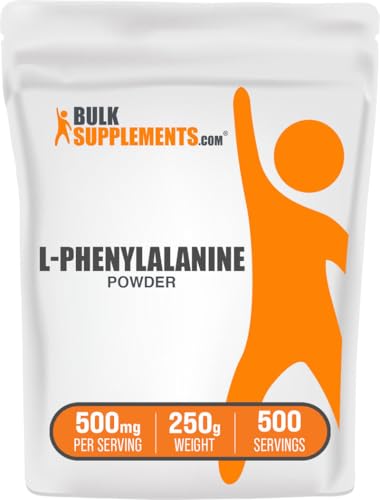L-Phenylalanine Derivative Enhances Pneumococcal Vaccine
Quick Summary: A new vaccine uses a modified form of L-Phenylalanine to help your body build stronger protection against pneumonia. This study showed the vaccine is safe and creates a good immune response in older adults.
What The Research Found
This study looked at a new pneumonia vaccine called VAX-24. It uses a special version of L-Phenylalanine in its manufacturing. The study found:
- The vaccine was safe for people over 65.
- It created a strong immune response, meaning it helped the body fight off the germs that cause pneumonia.
- The vaccine worked well, even better than some existing vaccines.
Study Details
- Who was studied: 207 healthy adults aged 65 and older.
- How long: The study followed people for about 6 months to check for safety and measured immune response after 1 month.
- What they took: Participants received one of three doses of the new vaccine or a standard pneumonia vaccine. The new vaccine uses a modified form of L-Phenylalanine.
What This Means For You
This research is good news for older adults. It shows that a new pneumonia vaccine, using a modified form of L-Phenylalanine, is safe and effective. This could mean better protection against pneumonia in the future. It also highlights how changes to vaccine manufacturing can improve their effectiveness.
Study Limitations
- The study only looked at the short-term effects of the vaccine.
- It only included healthy older adults, so we don't know if it works the same way for everyone.
- The study was a phase 2 trial, so it was not designed to measure how well the vaccine prevents pneumonia.
Technical Analysis Details
Key Findings
This phase 2 trial evaluated VAX-24, a 24-valent pneumococcal conjugate vaccine (PCV) using a carrier protein modified with para-azidomethyl-L-phenylalanine (a non-native L-phenylalanine derivative) for site-specific conjugation. The primary findings were:
- Safety: VAX-24 (at 1.1, 2.2, or mixed 2.2/4.4 mcg doses) showed comparable safety to PCV20 (Prevnar 20®) over 6 months, with no significant differences in solicited local/systemic events (within 7 days), unsolicited adverse events (within 1 month), or serious adverse events.
- Immunogenicity: Robust opsonophagocytic activity (OPA) and immunoglobulin G (IgG) responses were observed for all 24 pneumococcal serotypes. The VAX-24 2.2 mcg dose elicited immune responses similar or higher than PCV20 for shared serotypes, supporting enhanced serotype coverage without carrier suppression.
- Dose selection: The 2.2 mcg dose demonstrated optimal immunogenicity and safety, advancing to phase 3 trials.
Study Design
Phase 2, randomized, double-blinded, dose-finding controlled trial in 207 healthy adults ≥65 years (200 completers). Participants were randomized 1:1:1:1 to:
- VAX-24 1.1 mcg
- VAX-24 2.2 mcg
- VAX-24 mixed dose (2.2 or 4.4 mcg)
- PCV20 (control)
Primary endpoints: Safety (local/systemic events ≤7 days; adverse events ≤6 months) and immunogenicity (serotype-specific OPA/IgG at 1 month post-vaccination).
Dosage & Administration
Three VAX-24 dose levels were tested:
- 1.1 mcg
- 2.2 mcg
- Mixed dose (participants received either 2.2 or 4.4 mcg)
All administered as a single intramuscular injection. The carrier protein (eCRM) incorporated para-azidomethyl-L-phenylalanine to enable site-specific conjugation via click chemistry.
Results & Efficacy
- Safety: No dose-dependent safety signals. Solicited adverse events (e.g., injection-site pain, fatigue) were mild/moderate and balanced across groups (VAX-24 vs. PCV20).
- Immunogenicity:
- OPA and IgG geometric mean titers (GMTs) increased for all 24 serotypes post-VAX-24.
- VAX-24 2.2 mcg induced non-inferior or superior GMTs versus PCV20 for shared serotypes (quantitative data not detailed in summary, but described as "similar or higher" on average).
- Site-specific conjugation enabled consistent T-cell epitope exposure, reducing carrier protein-to-polysaccharide ratios and minimizing immune interference.
Limitations
- Short-term focus: Immune response measured only at 1 month; long-term durability and clinical efficacy (e.g., disease prevention) remain unassessed.
- Narrow population: Exclusively healthy adults ≥65 years; results may not generalize to immunocompromised or younger individuals.
- Phase 2 constraints: Limited sample size (n=207) reduces power to detect rare adverse events; lack of placebo control (PCV20 used as active comparator).
- Unreported statistics: Exact p-values, confidence intervals, and serotype-specific effect sizes were not provided in the summary.
Clinical Relevance
This study validates para-azidomethyl-L-phenylalanine as a critical tool for improving vaccine manufacturing, not as a standalone supplement. The modified amino acid enabled site-specific conjugation, expanding pneumococcal coverage to 24 serotypes while maintaining safety and enhancing immune responses versus existing PCVs. For supplement users, this research does not support L-phenylalanine supplementation for immunity or health benefits; it solely demonstrates the derivative’s utility in advanced vaccine design. Future applications may yield broader-coverage vaccines, but direct implications for dietary L-phenylalanine intake are nonexistent.
Original Study Reference
A phase 2, randomized, blinded, dose-finding, controlled clinical trial to evaluate the safety, tolerability, and immunogenicity of a 24-valent pneumococcal conjugate vaccine (VAX-24) in healthy adults 65 years and older.
Source: PubMed
Published: 2024
📄 Read Full Study (PMID: 39025698)



